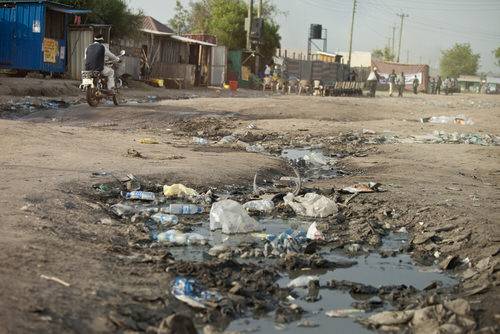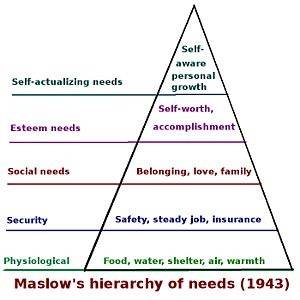
Running water, air conditioning, refrigeration or Internet … which is most important to you?
In some parts of the world, getting any of these is a trial, but in the overly pampered Western world, they’re taken as a given. Until they’re not, which is what happened to me this weekend.
At the tail end of an 11-month remodeling project on our house, we were desperate to move in even though the house was still in disarray. Given time constraints, we had to make a choice between A/C, running water, kitchen appliances or Internet. I chose Internet. Which would you choose?
Internet As A Human Right
Three years ago the United Nations declared Internet access essential to other human freedoms, including freedom of expression. In a special report, the international organization reasoned:
Given that the Internet has become an indispensable tool for realizing a range of human rights, combating inequality, and accelerating development and human progress, ensuring universal access to the Internet should be a priority for all States.
The report further “calls upon all States to ensure that Internet access is maintained at all times.”
Historically, I would have rolled my eyes at such a declaration. I’m somewhat suspicious of Western society’s constant drumbeat to establish more rights, when it strikes me that we’d do better to focus on our responsibilities to each other.
And yet there are very good reasons for believing that Internet access should be a unalterable right. According to the organization A Human Right:
- 4.6 billion people live without Internet access;
- Access to many essential services like healthcare, education and disaster relief are now improved by or dependent on Internet access.
The organization also claims that a 10% increase in broadband Internet access adds between 1.28 and 2.5 percentage points to GDP growth, although it doesn’t reference a source for that figure. This report from the International Telecommunication Union cites a World Bank study that found a 1.38 point increase in GDP growth for a 10% increase in broadband access among low and middle-income economies.
Matt’s Hierarchy Of Needs
All of this made more sense to me when I was stripped of the Internet for a day, and the prospect of an Internet-free week loomed before me.

As we raced to move out of our rental and into our remodeled home, we had to direct our contractor’s resources to the highest priorities. Could we live without a refrigerator for a few days? Or a microwave/stove? Or air conditioning? Of course.
Could we survive on a single bathroom with six people fighting over it? Barely, but yes.
But what about losing our Internet access? You’d have to pry it from our cold, dead fingers.
When considering Maslow’s hierarchy of needs, it quickly became apparent that he had left off a critical base tier: Internet. Or maybe that’s the wrong way of thinking about the Internet: It’s not a separate need, but rather one that enables many, if not all the others.
In my case, I coaxed the Comcast technician to spend several hours more than the company had budgeted for him to run a line several blocks to our house, then fish it under our driveway to complete the connection to our home. My livelihood was at stake, not to mention social interactions.
What Would You Choose?
Of course, I wasn’t dealing with a life-or-death choice between starvation, hypothermia or Internet. I was dealing with differing levels of discomfort. If I truly had to choose between food or the Internet, of course I’d choose food.
But what this experience drilled into me is just how much my food depends on my access to the Internet. No, not whether or not I can use an app to order Dominos, but whether I can afford to buy food at all.
Watch what happens the next time the Internet goes down at your workplace. People panic. Work grinds to a halt.
In our increasingly interconnected world, Internet-based communication is the foundation for our economies, our companies and our personal livelihoods. I’m not sure this means Internet is a basic human right, but it surely means it’s something we should earnestly strive to provide for every person on the planet.
The costs of providing Internet access to all are very high, as McKinsey data shows. But so are the costs of not providing that access.
Lead image courtesy of Shutterstock
















